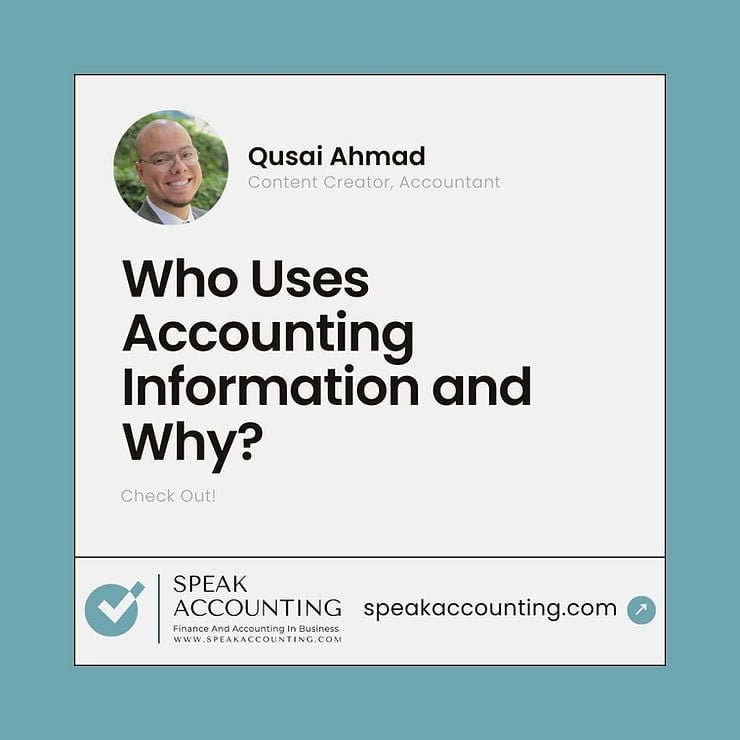

Introduction – Who Uses Accounting Information and Why?
Accounting information is the output of the accounting process, which involves recording, classifying, summarizing, and reporting financial transactions and events. Accounting information can be presented in various forms, such as financial statements, budgets, forecasts, and ratios. Accounting information is useful for different users who have different purposes and needs. In this blog post, we will explore the following questions:
- Who are the main users of accounting information?
- What are their information needs and objectives?
- How do they use accounting information to make decisions?
Internal Users of Accounting Information
Internal users are those who are directly involved in managing and operating an organization. They include managers, owners, employees, and internal auditors.
Internal users need accounting information to plan, control, evaluate, and improve the performance of the organization. Some of the specific information needs and objectives of internal users are:
- Managers: Managers need accounting information to set goals, allocate resources, monitor activities, and measure results. They use accounting information to make strategic, tactical, and operational decisions, such as product pricing, market expansion, cost reduction, and capital investment.
- Owners: Owners need accounting information to assess the profitability, liquidity, solvency, and growth potential of the organization. They use accounting information to evaluate the return on their investment, the risk of their investment, and the value of their equity.
- Employees: Employees need accounting information to negotiate wages, bonuses, and benefits. They also need accounting information to understand the financial health and stability of the organization, as it affects their job security and career prospects.
- Internal auditors: Internal auditors need accounting information to examine the accuracy, completeness, and reliability of the accounting records and systems. They also need accounting information to evaluate the effectiveness and efficiency of the internal controls and risk management processes.
External Users of Accounting Information
External users are those who are not directly involved in managing and operating an organization but have an interest or stake in its activities and outcomes. They include investors, creditors, customers, suppliers, regulators, and tax authorities. External users need accounting information to make informed judgments and decisions about the organization.
Some of the specific information needs and objectives of external users are:
- Investors: Investors need accounting information to evaluate the performance, risk, and value of the organization. They use accounting information to decide whether to buy, hold, or sell their shares, and to assess the dividends and capital gains they can expect from their investment.
- Creditors: Creditors need accounting information to evaluate the creditworthiness and repayment ability of the organization. They use accounting information to decide whether to lend money to the organization, and to determine the interest rate and terms of the loan.
- Customers: Customers need accounting information to assess the quality, reliability, and price of the products or services offered by the organization. They use accounting information to decide whether to purchase from the organization, and to negotiate the terms and conditions of the contract.
- Suppliers: Suppliers need accounting information to assess the financial position and purchasing power of the organization. They use accounting information to decide whether to supply goods or services to the organization, and to determine the payment terms and discounts.
- Regulators: Regulators need accounting information to monitor and enforce the compliance of the organization with the laws, rules, and standards that govern its industry and operations. They use accounting information to inspect, audit, and sanction the organization for any violations or irregularities.
- Tax authorities: Tax authorities need accounting information to determine the tax liability and tax compliance of the organization. They use accounting information to collect, verify, and audit the tax returns and payments of the organization.
Conclusion
Accounting information is vital for various users who have different purposes and needs. Accounting information helps users to make rational and informed decisions about the organization. Accounting information also enhances the accountability, transparency, and credibility of the organization. Therefore, accounting information is not only important for the organization itself, but also for the society at large.
Share this content:
